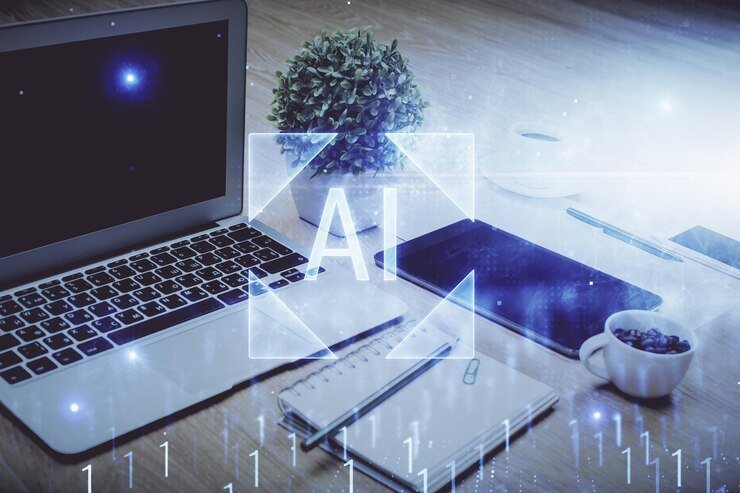An essential component of artificial intelligence is character AI, which is used in everything from virtual assistants to games.It improves user engagement and experience by allowing these characters to display genuine actions, feelings, and reactions. Character artificial intelligence (AI) uses algorithms to mimic human characteristics, speech, and decision-making, making digital environments more dynamic and engaging. But its speed is a common problem that reduces its effectiveness. In this article, we will look into the causes why is Character AI slow and how can we fix it to improve its functionality.
Why is Character AI Slow?
Several factors can be the reasons for the slow working of Character AI systems. The some major factors are:
Poor Network Conditions
Character AI can be slowed by poor network conditions because of delayed data transmission. The server and device must constantly communicate data in order for real-time interactions to occur. AI response times are impacted by delays in information transmission and reception caused by slow or unstable networks. The system appears slow as it tries to digest and send timely updates across the network, disrupting the smooth flow of character AI activities and interactions.
Improper Browser Caches
Character AI speed may be negatively affected by poorly maintained browser caches, which can lead to frequent delays in data retrieval. Processing may become slower if AI resources are kept improperly in the cache and are frequently requested. Insufficient caching techniques can impact real-time interactions, increase latency in character AI answers, require more frequent data requests from servers, and degrade system performance in general. Effective cache management is essential for the best possible AI performance and speed.
System Maintenance
System Maintenance can make Character AI slow due to updates, modifications, or data optimizations. These processes hinder AI performance, leading to brief delays. Real-time AI performance is disrupted by maintenance operations such as changing data or reconfiguring algorithms. Furthermore, AI may be tested or debugged during maintenance, which would slow it down from its typical pace. Even while these necessary maintenance steps are essential for the health of the system, Character AI speed may be briefly slowed until optimizations are finished.
Increase in Traffic Volume
Character AI may get slower as traffic volume increases because of increased processing loads. Increased interactions or characters in a system put more demand on its processing power. The AI of each character requires independent judgment, which leads to total computations. The increase in activity affects real-time responsiveness and affects the system’s overall speed and performance as the AI finds it difficult to handle multiple continuous actions.
Browsers Extensions
Character AI speed can be impacted by browser extensions because they use up system resources. AI functions are slowed down by extensions that compete with AI apps for memory and processing power when they run continuously. They might interfere with AI operations, delaying the creation of reactions or behaviors. Character AI’s overall speed and performance in browser-based environments are affected by extensions since they frequently use CPU and RAM, which lowers the amount of resources available for AI computations.
Technical Issues
Character AI can be slowed by technical problems such of hardware limitations, inefficient programming, or computational stress. Complex simulations and algorithms require a lot of processing power, which adds to the delay. Performance limitations can be caused by limited hardware or poorly optimized code. Real-time responsiveness may also be affected by server loads or network problems in online contexts. Character AI speed can be increased by addressing certain technological issues, such as improving code efficiency, modernizing hardware, or simplifying network infrastructure.
Character AI Errors
Character AI issues can reduce performance which leads to unexpected behaviors or inefficient code execution, which can slow down operations. Decision-making algorithm errors or faulty reasoning might require the system to recalculate actions, adding time to the processing process. Bugs can cause character AI systems to run slower overall either causing repeating calculations to occur or by interfering with the flow of character interactions.
How to Fix the Speed of Character AI?
Efforts are being made to optimize Character AI speed. Methods that combine hardware and algorithmic advancements try to find a medium ground between accuracy and speed. Following factors can help you to fix this issue

Strong Internet Connection
Stable Connection: To ensure smooth AI processing, make sure you have a strong internet connection.
Optimize bandwidth by minimizing data use to cut down on delays.
Server Closeness: Reduce data transfer delays by using AI services closer to the server.
Quality Control: Verify a steady connection to ensure character AI functions without delay.
Network Monitoring: Evaluate and resolve connectivity problems that affect AI speed on a regular basis.
Restart Your PC
Clear Cache: Memory allocation can be enhanced and temporary files removed by restarting.
Refresh System: It can fix resource-hungry background processes.
Reinitialize Connections: AI communication can be stabilized by resetting.
Fix Software Errors: If AI performance is being impacted by underlying software problems, a reboot may help.
Optimize Resources: For better character AI functions, a restart might reallocate resources.
Clear Cache and Cookies
Clearing the cache speeds up processing by lowering the time it takes to find temporary data.
Cookie clearing removes user data that has been stored, avoiding conflicts or slowdowns brought on by expired or wrong information.
Increases the effectiveness of the system refreshes AI algorithms, which can reduce delays brought on by outdated or stored data.
Disable Extensions
Detect extensions with a lot of resources: Examine the AI algorithms causing the delays.
Turn off non-essential features: Disable less important features.
Give priority to essential functions: Reduce needless calculations and concentrate on important activities.
Selectively test and re-enable extensions: Reintroduce extensions gradually while continuously checking the speed impact.
Algorithm optimization: Simplify the code to increase productivity.
VPN Impact
Determine the impact of a VPN: Analyze how VPN affects AI performance.
Enhance your VPN settings: Select protocols or servers that are faster.
Give AI traffic priority: Set aside bandwidth for AI functions.
Set local processing into practice: Lessen your need for VPN for outside servers.
Fix and enhance: Take care of any flaws or inefficiencies caused by AI.
Using Different Browsers
Browser choice matters: Some AI implementations work more efficiently in specific browsers.
Compatibility checks: Ensure the AI’s code aligns with the browser’s optimal performance.
Test different browsers: Experiment with various browsers to find the one best suited for the AI’s processing requirements.
Update browsers: Ensure browsers are updated for improved compatibility and performance.
Monitor Server Status
Regularly check CPU and server load.
Code should be optimized for processing speed.
Put caching techniques in place for data that is accessed frequently.
If required, upgrade your hardware resources.
Find and fix AI algorithmic limitations.
Analyze performance problems with monitoring tools.
Use multiple processors to speed up calculations.
Update and optimize AI models often to maximize efficiency.
Character AI Support
Record problems of slow speed and report them to Character AI Support.
Give thorough details about the behavior of AI and the operation of the system.
Ask for help if you want to optimize code or algorithms for quicker execution.
Work along with support to find and fix faults that affect speed.
Apply any updates or fixes that Character AI Support recommends.
Conclusion
Character AI slow because of the complexity of modeling human behavior, computations that need a lot of resources, and possible faults in the system. To solve this, character AI systems may be made much faster and more efficient by working with AI support, reporting problems, refining algorithms, and putting recommended changes into practice. This will ensures interactions that are more responsive and smooth.




